Reading comprehension Normal Social Studies Worksheets for Ages 5-6
34 filtered results
-
From - To
Our "Reading Comprehension Normal Social Studies Worksheets for Ages 5-6" offer an engaging and educational resource for young learners. Carefully designed to match early developmental stages, these worksheets seamlessly blend fundamental social studies topics with age-appropriate reading tasks. Each activity aims to enhance critical thinking, comprehension skills, and vocabulary through interactive exercises that are both fun and instructional. By incorporating vibrant images and simple text, our worksheets enable children to grasp essential social concepts while fostering a love for reading. Perfect for classroom and home use, they provide a strong foundation for lifelong learning and academic success.
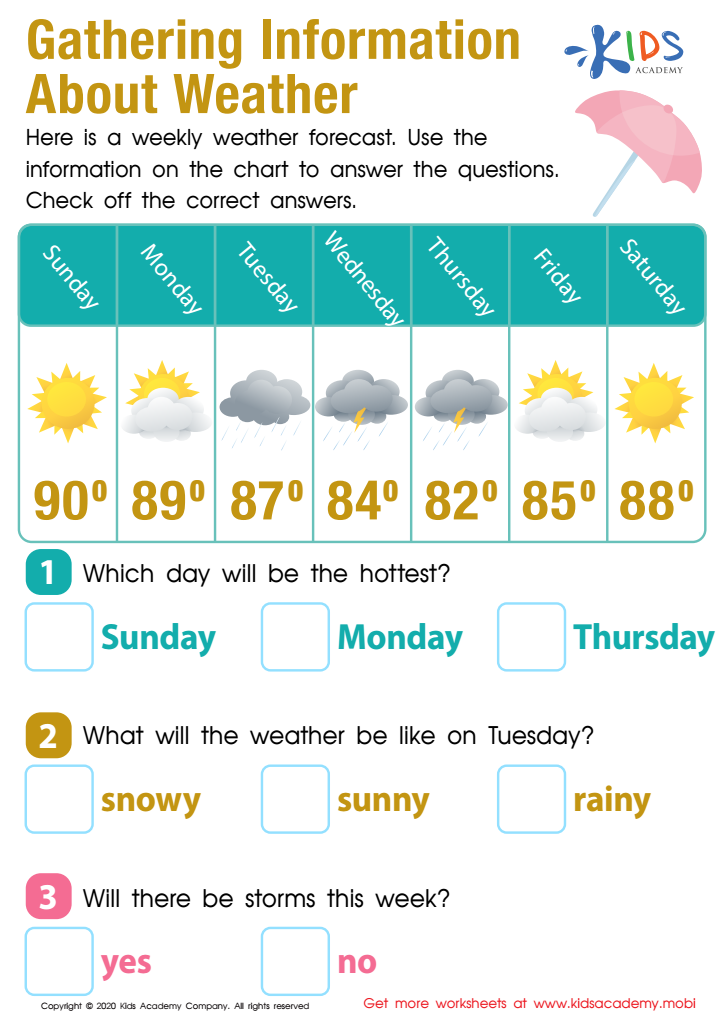

Gathering Information About the Weather Worksheet


Traditional Food in Mexico Worksheet
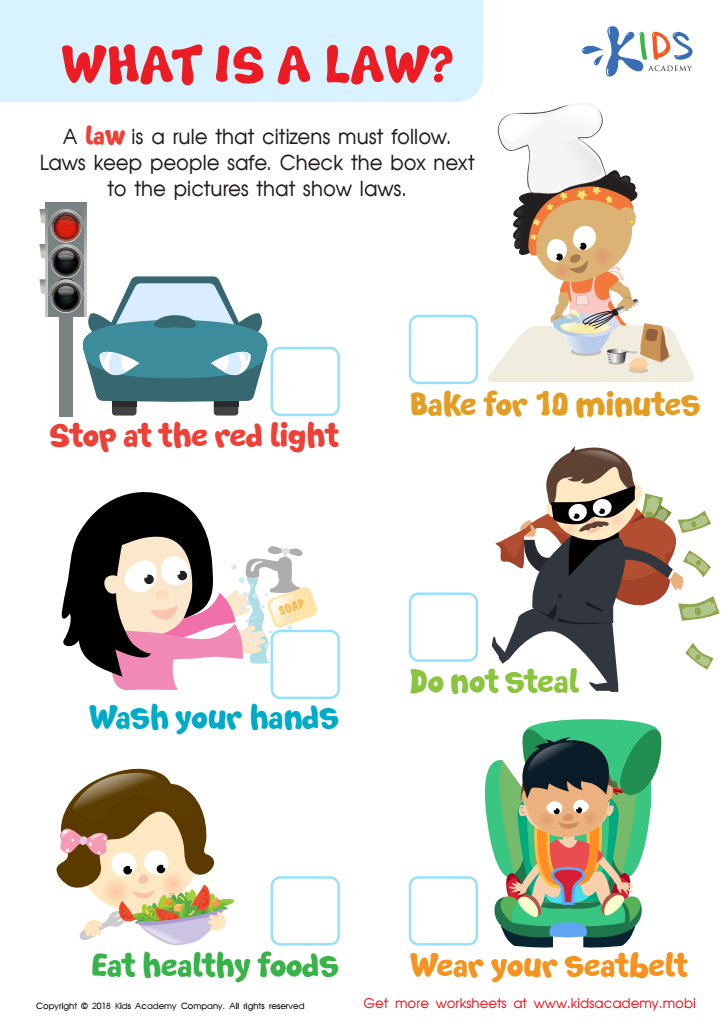

What is a Law? Worksheet
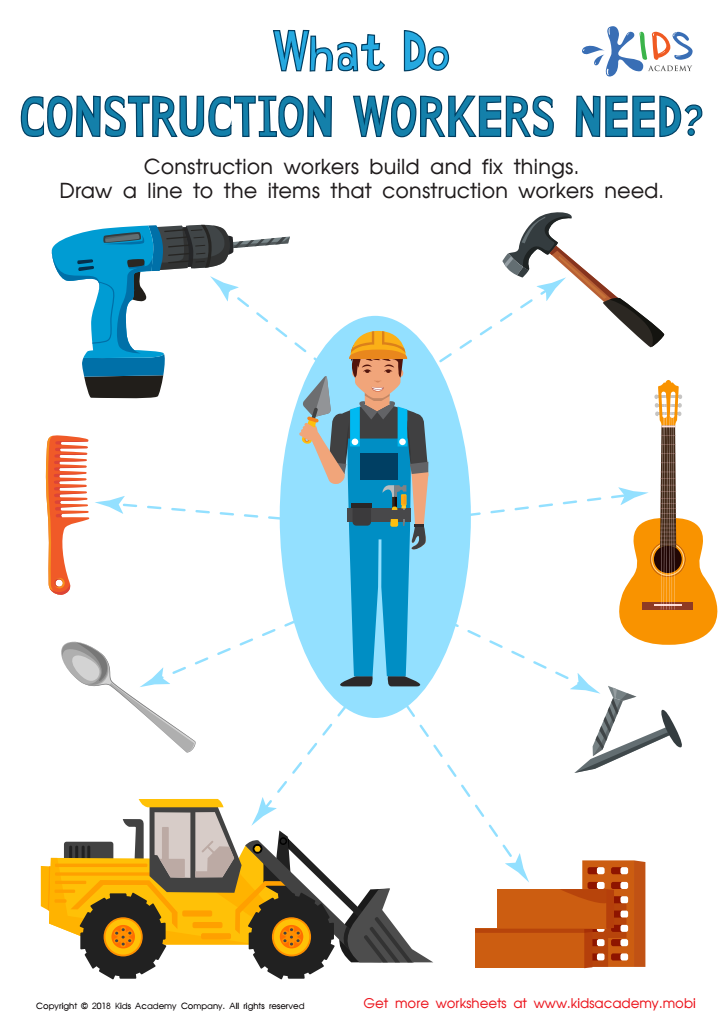

What Do Construction Workers Need? Worksheet
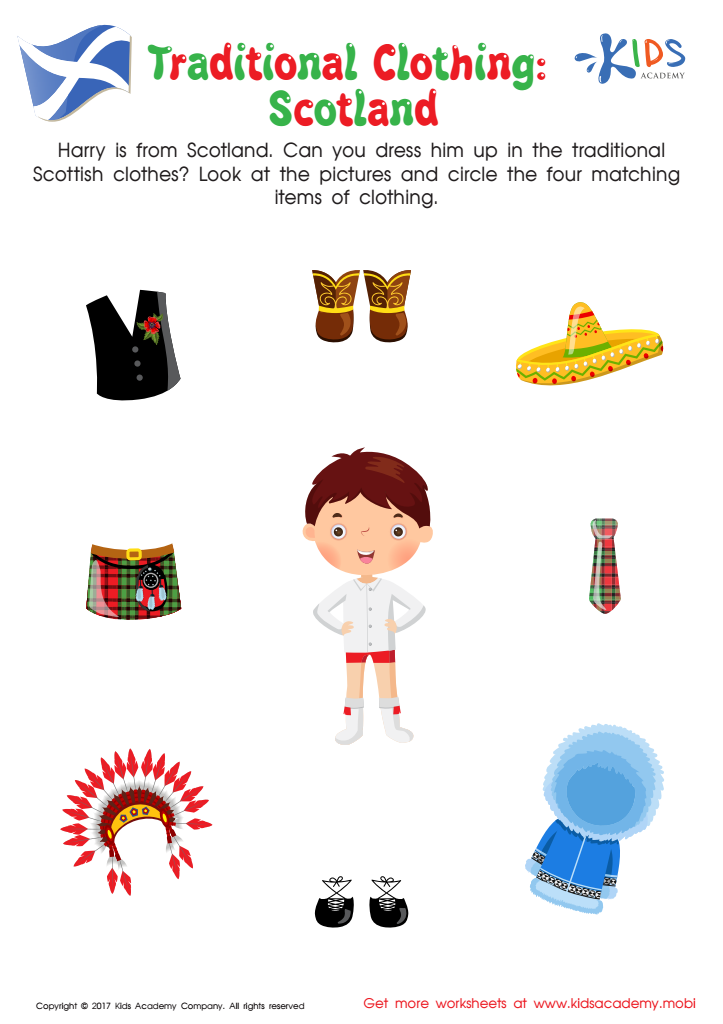

Traditional Clothing in Scotland Worksheet
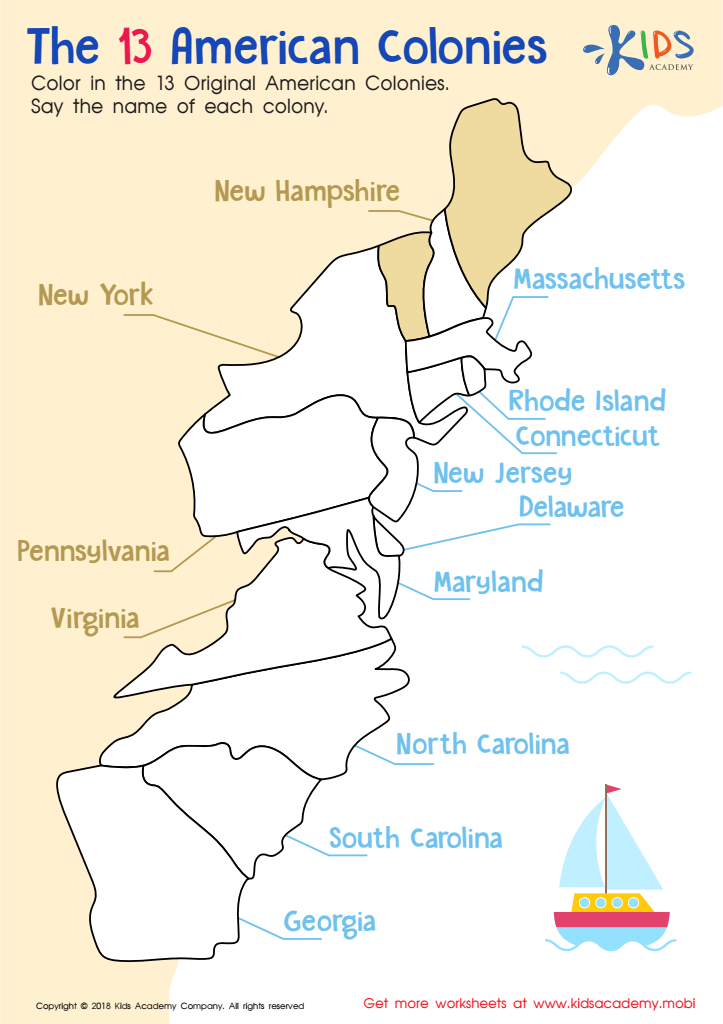

The 13 American Colonies Worksheet
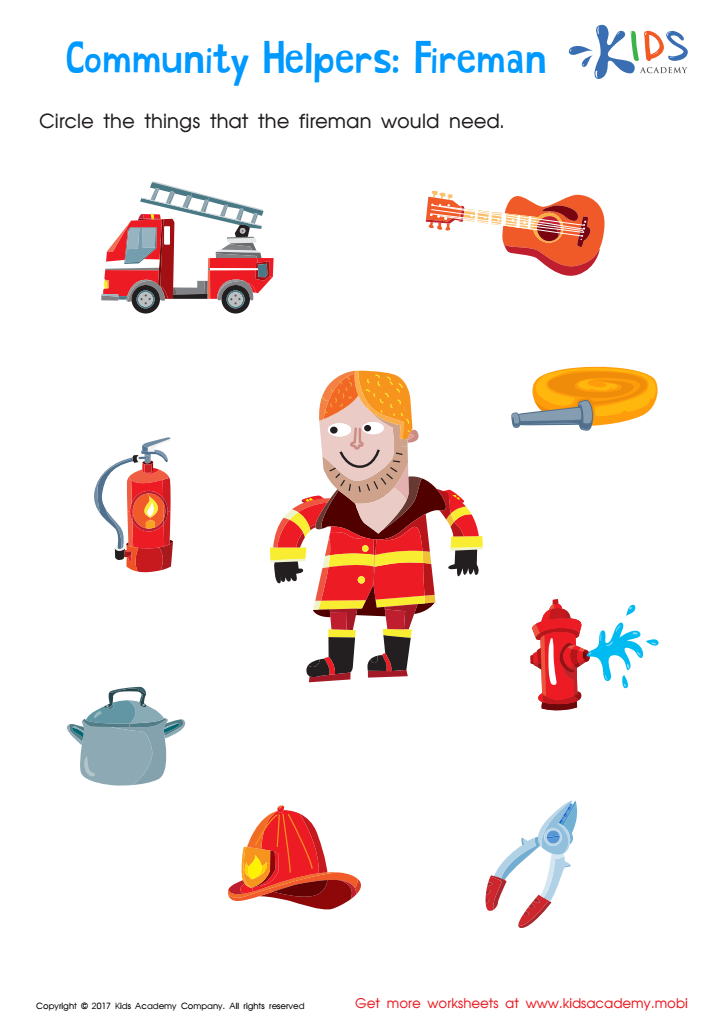

Fireman Worksheet
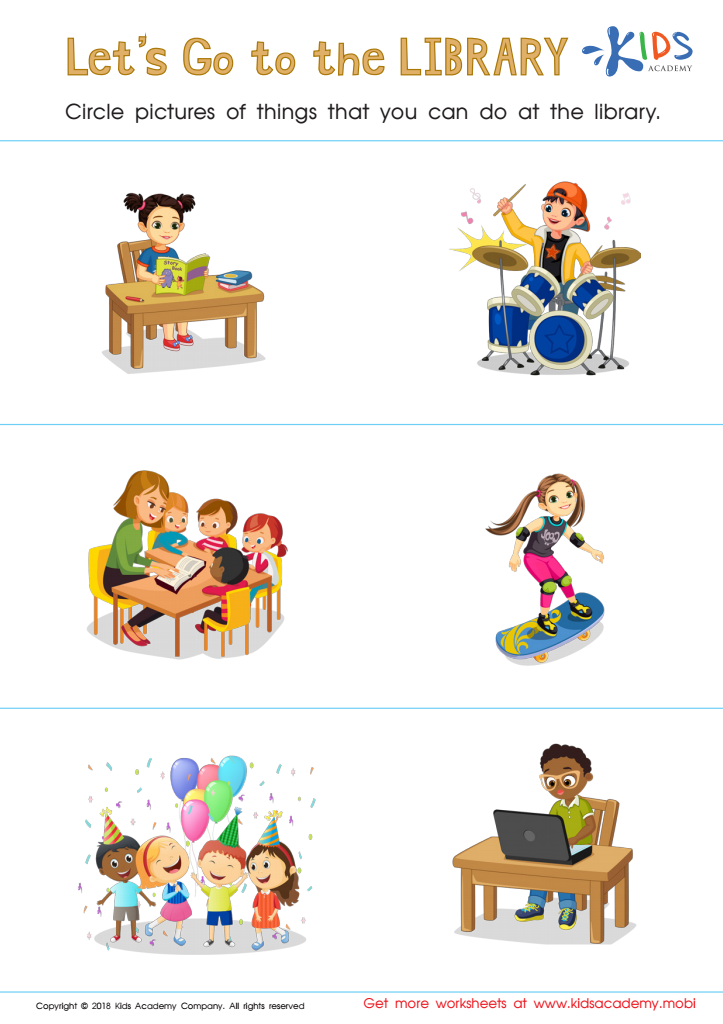

Let's Go to the Library! Worksheet
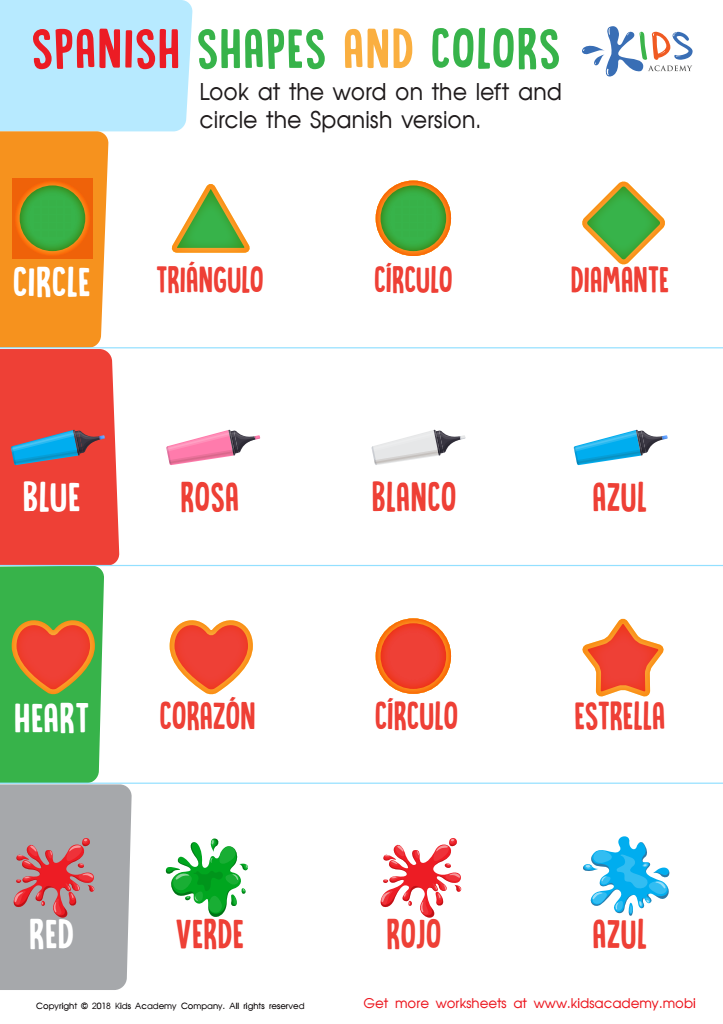

Spanish Shapes and Colors Worksheet
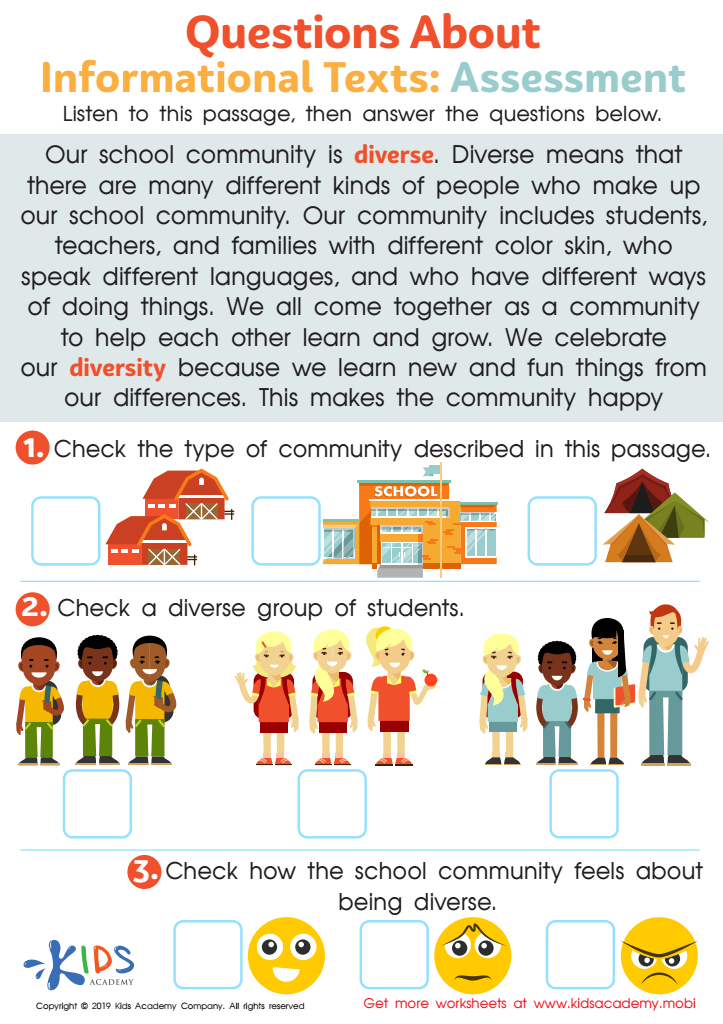

Questions About Informational Texts: Assessment 1 Worksheet


My Bedroom Worksheet
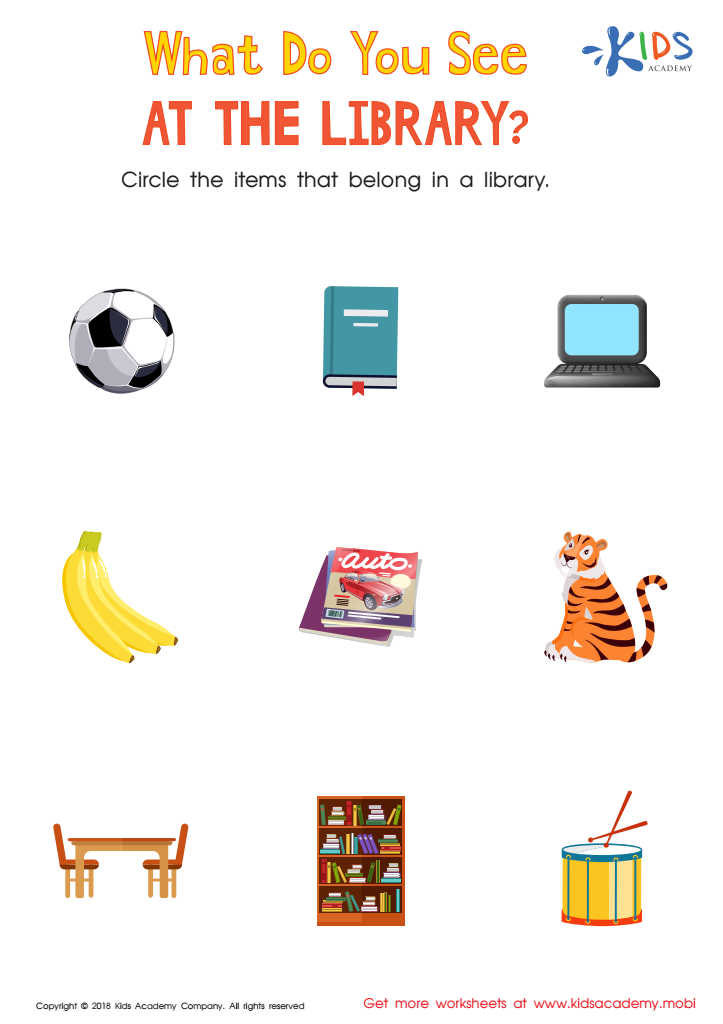

What Do you See at the Library? Worksheet
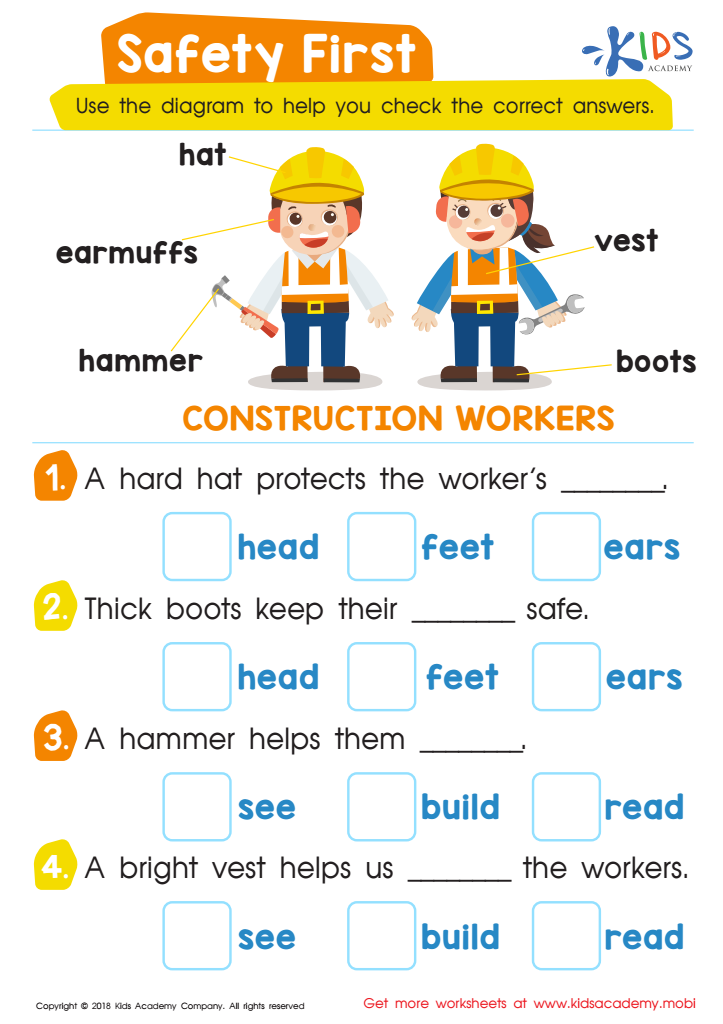

Safety First Worksheet
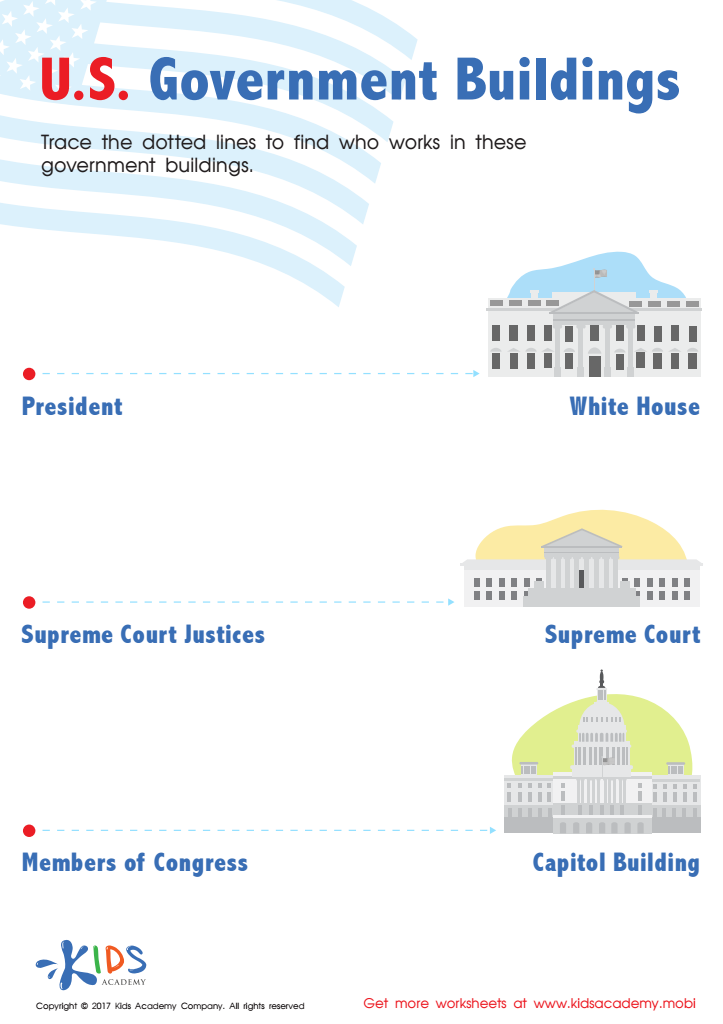

US Government Buildings Printable
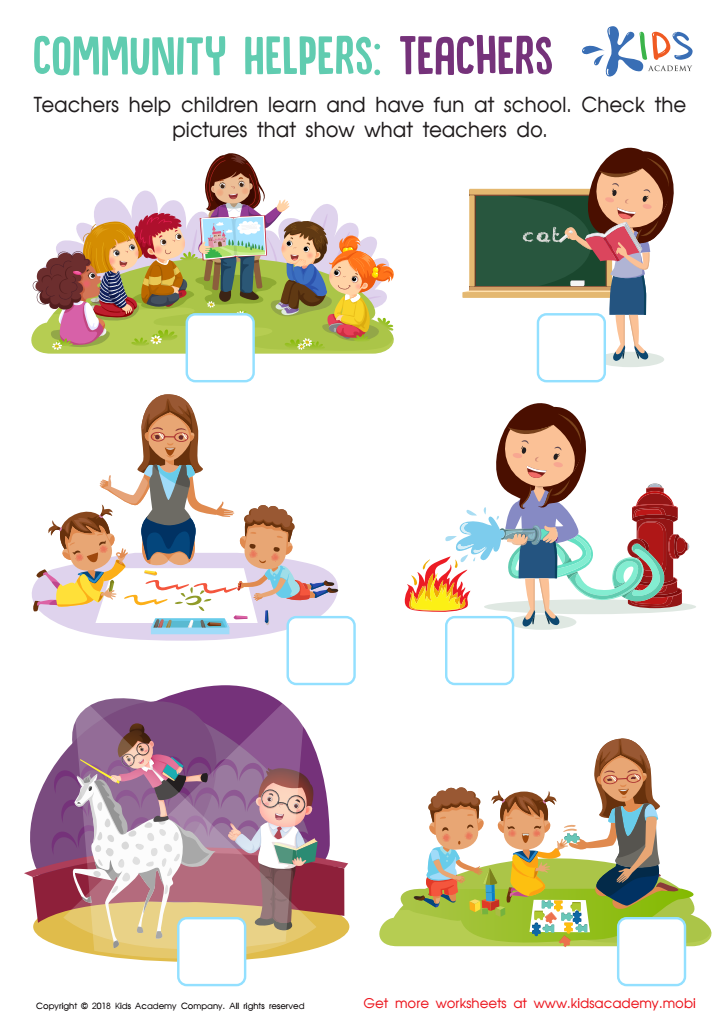

Teachers Community Helpers Worksheet
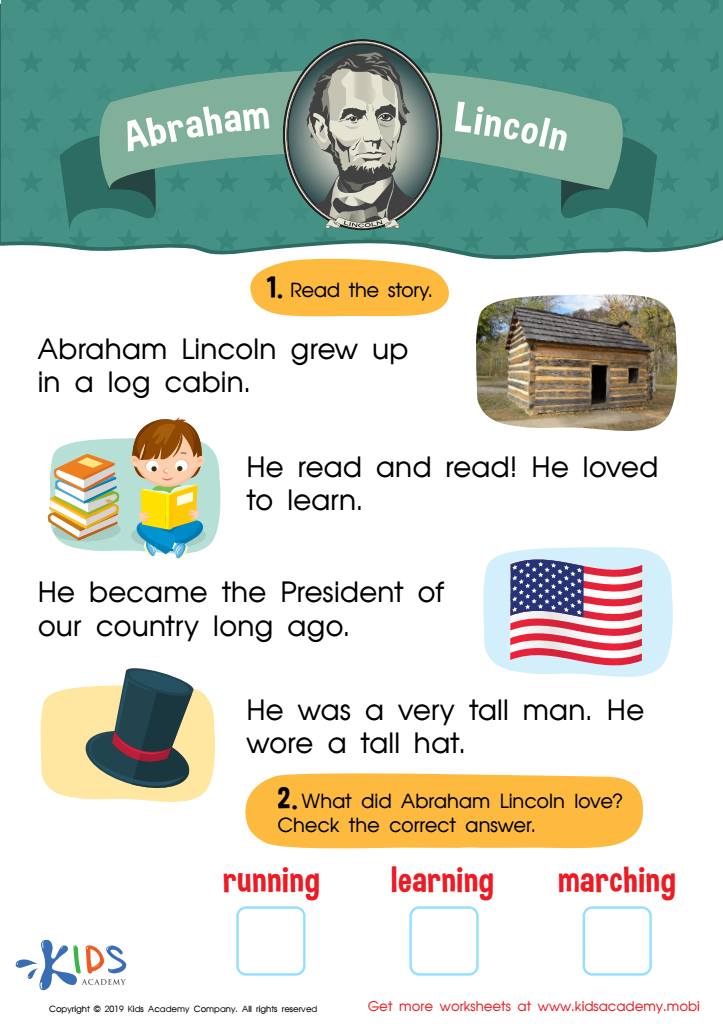

Abraham Lincoln Worksheet


Thanksgiving Holiday Printable
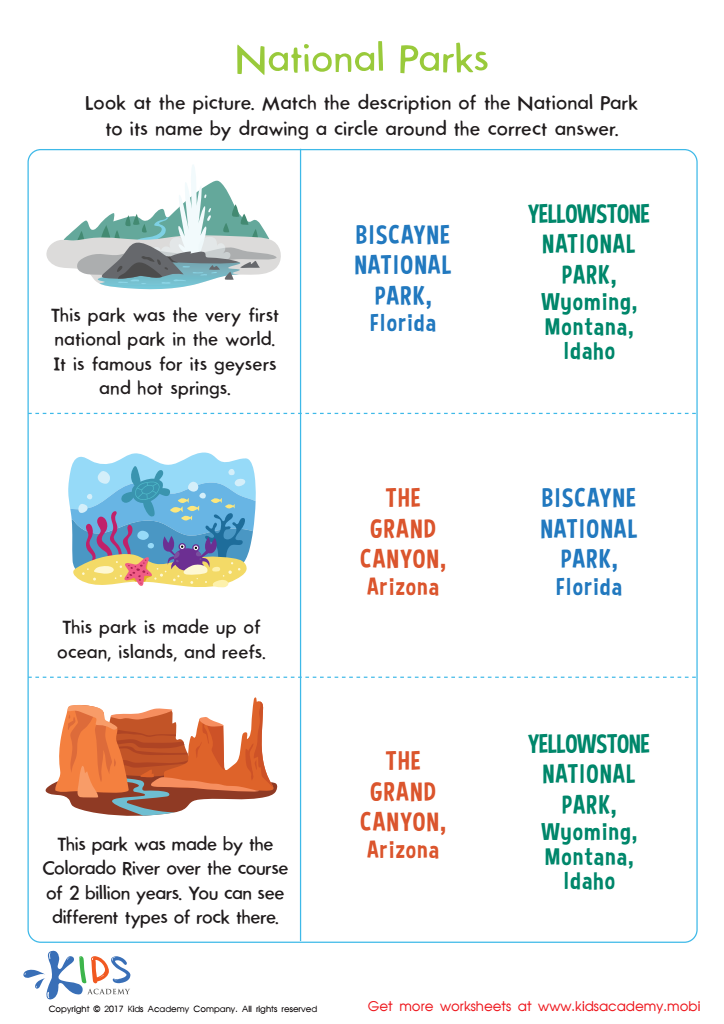

National Parks Printable


Halloween Holiday Worksheet
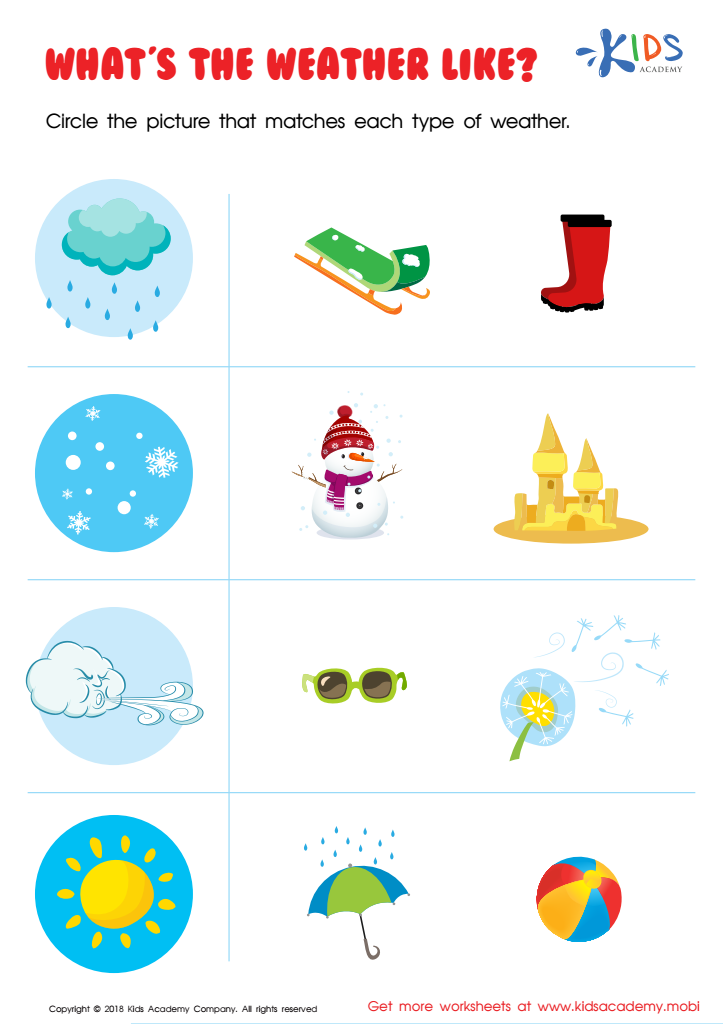

What's the Weather Like? Worksheet
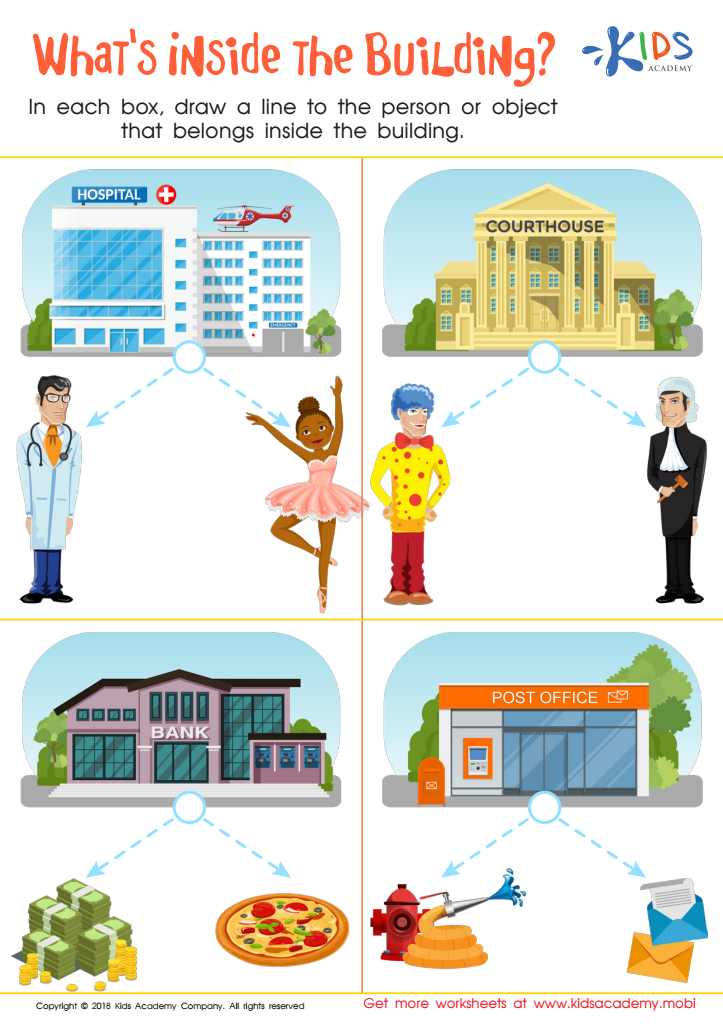

What's Inside the Building? Worksheet
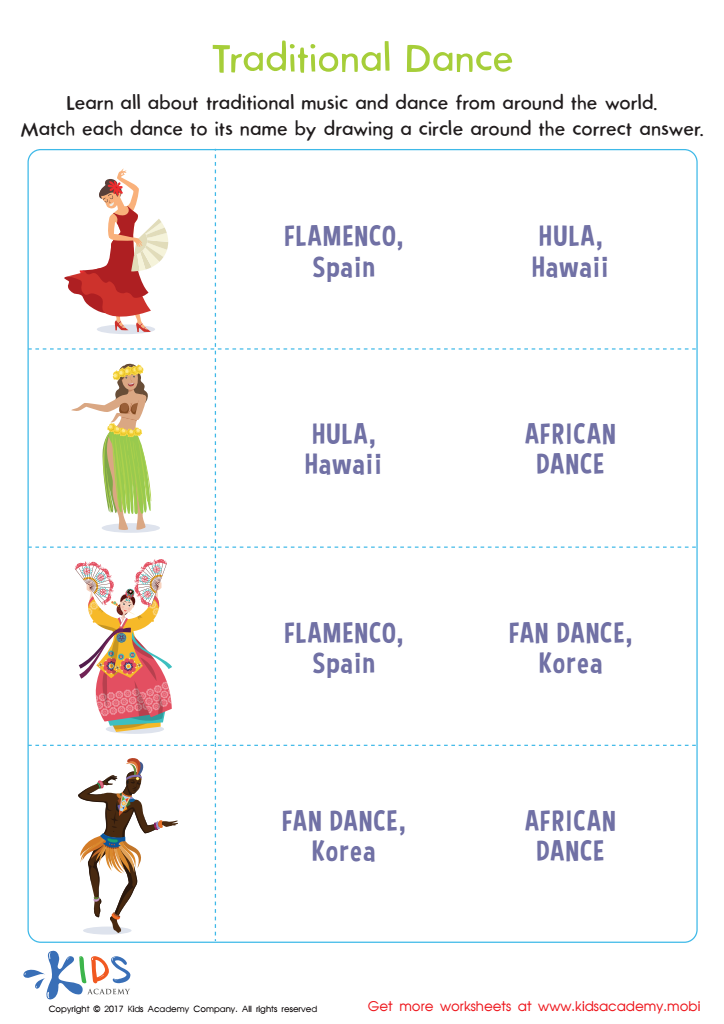

Traditional Dance Printable
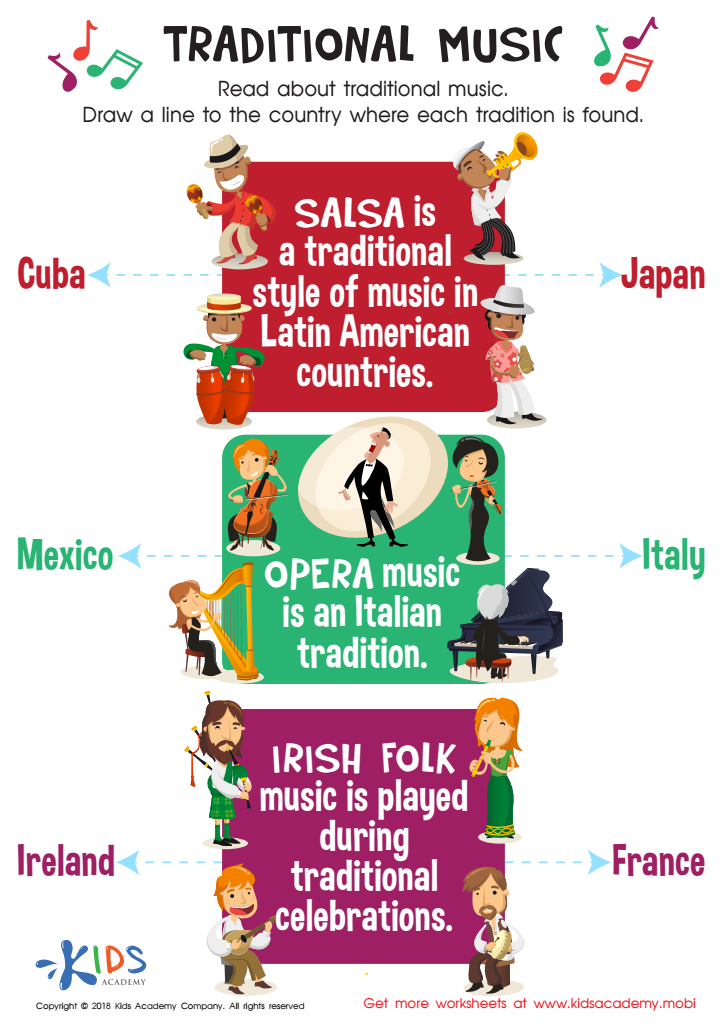

Traditional Music Worksheet
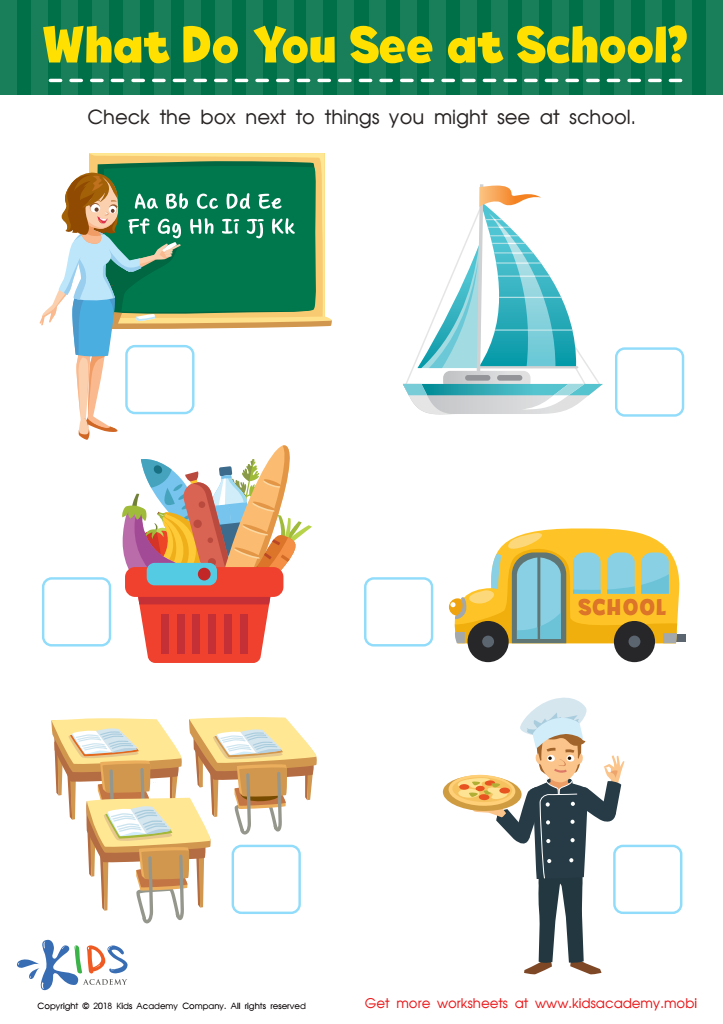

What Do you See at School? Worksheet
Reading comprehension is fundamental for young children's overall educational development, particularly in social studies for ages 5-6. At this early age, children are not just beginning to grasp reading but also understanding the world around them. Social studies offer insights into community, family roles, cultural norms, and basic historical concepts, which lay the groundwork for responsible citizenship.
By improving reading comprehension, children can better absorb and retain the material covered in social studies. This skill allows them to understand simple texts about familiar topics, such as their local community or significant national symbols. When children comprehend what they read, they can engage in meaningful discussions, ask pertinent questions, and develop critical thinking skills.
Furthermore, reading comprehension in social studies fosters empathy and diversity appreciation. Stories about different cultures and lifestyles help young children recognize and respect differences, promoting social cohesion. This awareness is crucial in forming their identity and value system from an early age.
Effective reading skills also create a positive feedback loop: as children understand social studies content better, their interest and motivation increase, encouraging further learning. Parents and teachers play an essential role in nurturing these skills, ultimately equipping children with the tools necessary for lifelong learning and active societal participation.
 Assign to My Students
Assign to My Students



















